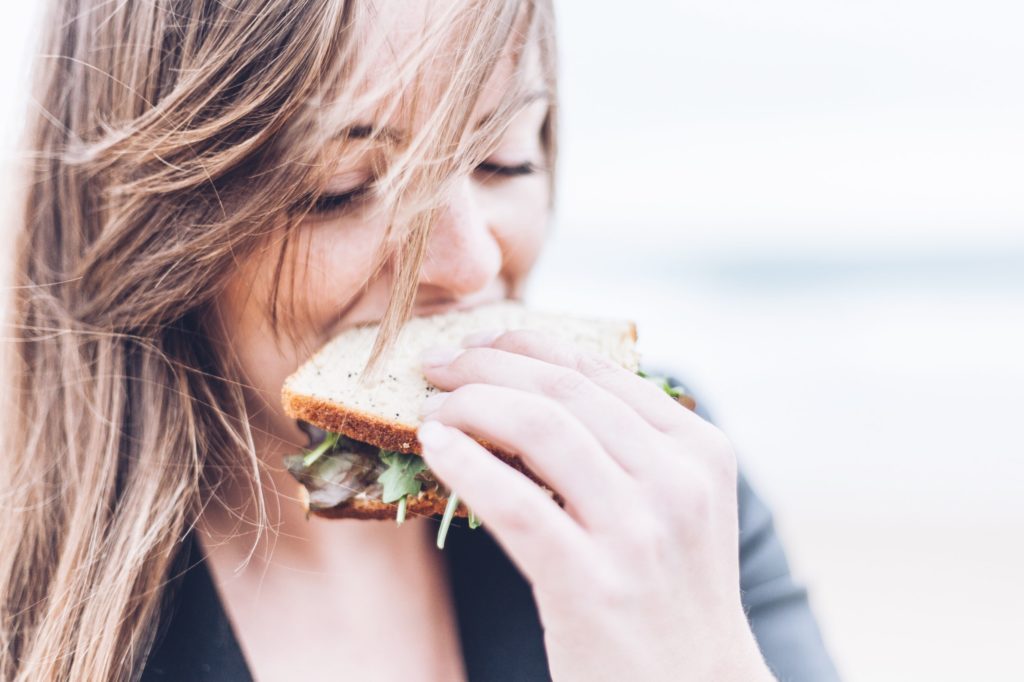Foods That Help With Anxiety

About 18 % of the population suffers from some kind of anxiety disorder and in our current circumstances, even more of us are experiencing anxiety. Anxiety and stress can deplete your body of nutrients like B vitamins, so it’s important to eat well to replenish your body. To help with this, we put together a list of foods that can help keep you calm and healthy.
- Whole grains vs. processed carbs will help keep your blood sugar more stable, creating an overall calmer feeling in the body.
- Magnesium-rich foods like spinach, swiss chard, leafy greens, whole grains, nuts, seeds, and legumes have been shown to decrease anxiety-related behaviors.
- Zinc is another great mineral for quelling anxiety. Foods high in zinc are oysters, cashews, liver, beef, and egg yolks.
- Omega-3 fatty acids are fantastic for brain and mental health. There are three types of Omega-3s: APA, EPA, and DHA. APA is found in chia seeds, hemp seeds, leafy greens, flax seeds, and other veggies. This source is generally used as energy within the body. You can only find EPA and DHA in marine sources like salmon, algae, seaweed, and other fatty fish. DHA, in particular, really helps with brain function. Supplements are a great way to get enough of these crucial fats into our diet, especially if you have a vegan or vegetarian lifestyle.
- Eating probiotic-rich foods like sauerkraut, fermented pickles, kimchi, and kefir is linked to fewer anxiety symptoms. These foods help balance the gut and since 90% or more of serotonin is built in the gut, making sure gut bacteria is balanced and healthy can have a huge impact on emotional well-being.
- Antioxidants are a fantastic way to help heal oxidative stress in the body and lower inflammation. Antioxidants are in colorful veggies and fruits like berries, peppers, kale, parsley, beets, goji berries, and other foods such as fish, nuts, and green tea.
- Lastly, drinking enough water is a great way to keep your body operating properly and your mind thinking clearly. Even at low levels, dehydration affects the way you think.
Along with eating healthy foods, connecting with friends and family and getting out in nature are also helpful strategies for boosting mental health and lowering stress.
We are all in this together, but that doesn’t mean our needs are all met the same way. If you’re noticing you could use additional resources, counselors and therapists are still able to meet virtually and chat over the phone. Take care and be well!
